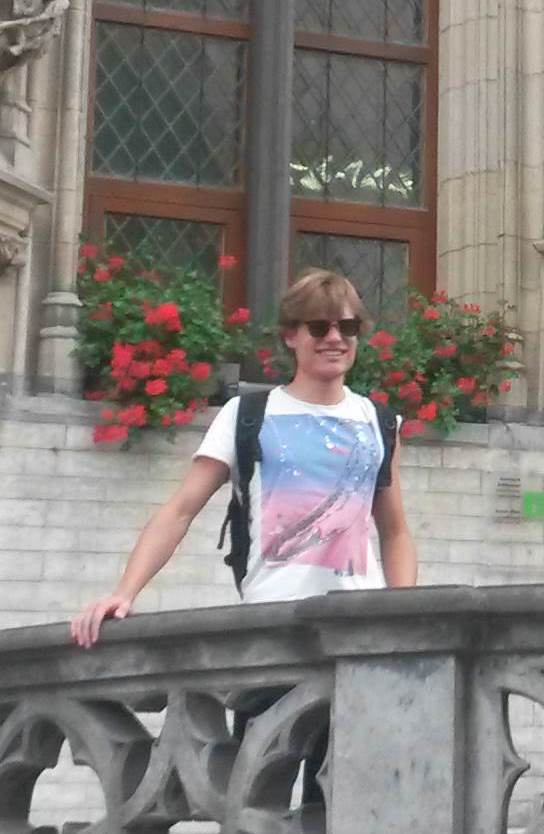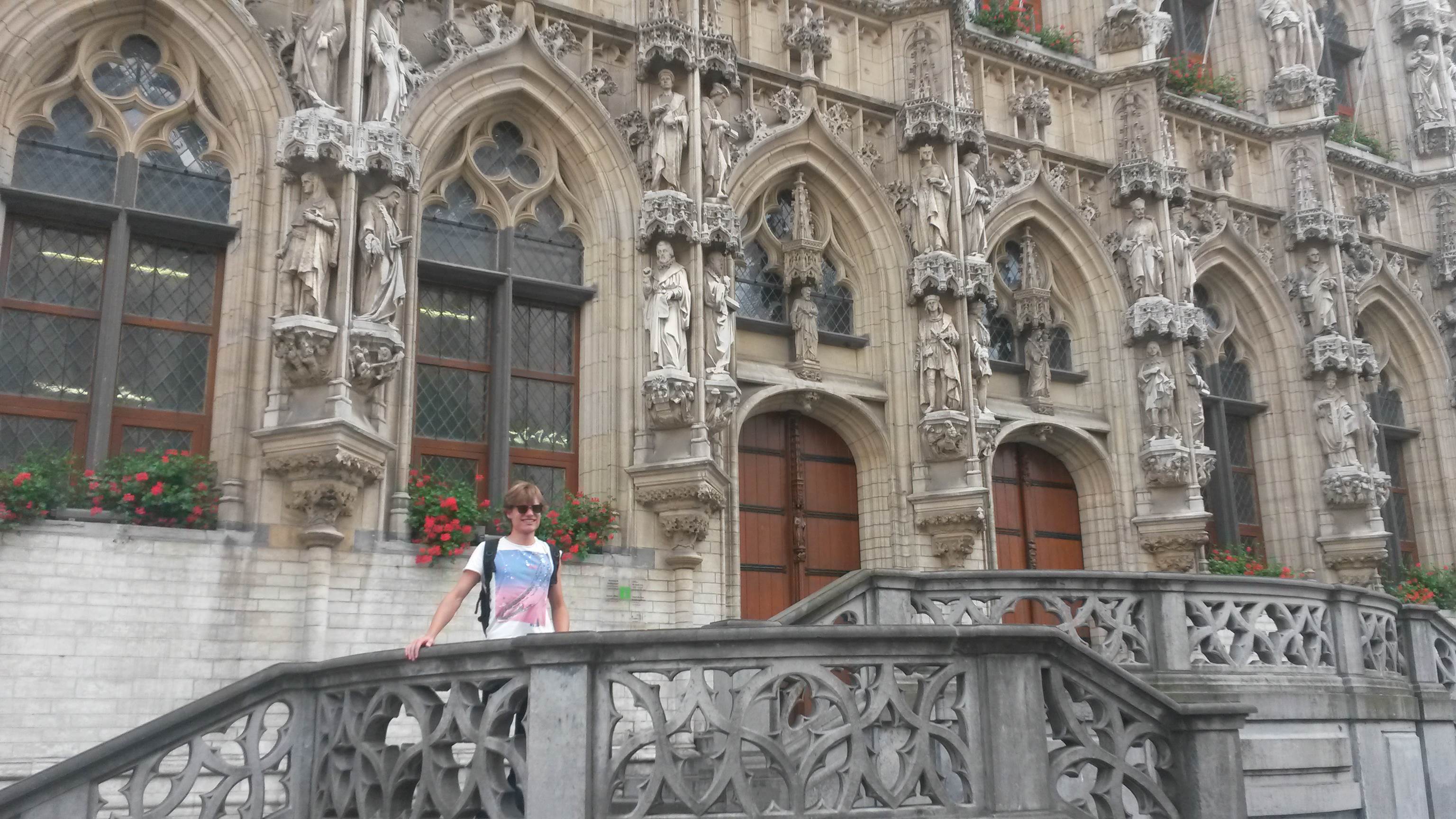EPS Conference on Plasma Physics - Leuven, Belgium
Report by Timo Ravensbergen. Powered by FuseNet.
 From July 4 till July 8, the 43rd EPS Conference on Plasma Physics was held in Leuven, Belgium. With Wendelstein having finished its commissioning phase, and multiple long-running ITER relevant simulations finally ready to be presented, it was bound to be an interesting week. Last winter, I spent a quartile at the ITER, to design algorithms for density control during ramp-up (check this ‘Powered by FuseNet’-article). I was asked to present the results in a poster session at the EPS conference, an excellent opportunity to get away from my computer and indulge myself in the world of plasma research.
From July 4 till July 8, the 43rd EPS Conference on Plasma Physics was held in Leuven, Belgium. With Wendelstein having finished its commissioning phase, and multiple long-running ITER relevant simulations finally ready to be presented, it was bound to be an interesting week. Last winter, I spent a quartile at the ITER, to design algorithms for density control during ramp-up (check this ‘Powered by FuseNet’-article). I was asked to present the results in a poster session at the EPS conference, an excellent opportunity to get away from my computer and indulge myself in the world of plasma research.
Each day started with invited talks, selected by the scientific committee. Not only magnetic confinement fusion (MCF) was represented, but for example, also an update on the NIF was given. As an engineer, I had some difficulty understanding the basic plasma (BAP) talks, which usually concerned fundamental properties of space plasmas. Then, after lunch, the poster session started. Each day, around 130 posters were presented by mainly PhD students, PostDocs and researches, and a few graduate students like me. The vast amount of posters each day made a preselection necessary. I was afraid that this would be difficult, and I would miss interesting ones. Luckily, the posters were also divided in topics, and for MCF, the different machines were often grouped together. Having to miss posters was unfortunate. However, each poster often represented a large research project, and in my opinion having a few qualitative discussions was more valuable than quickly scanning lots of posters. I was allowed to present my own poster on Thursday. Physicists are not intrinsically interested in control, which is why I mainly focussed on the problem and the results, rather than on the solution. Once I convinced people of the necessity of advanced control and showed them what it can do, they often asked for the underlying details themselves. I somewhat underestimated the power of these sessions. After only a few minutes, people were able to understand the details of my work, and even pinpointed weaknesses and how they could be improved.

After the poster session, parallel sessions with oral talks were held, dividing the participants in their respective fields. Usually, I chose to attend the MCF presentations. In my opinion, the most interesting topic was the assessment of divertor heat loads in ITER. One talk discussed the results of very complex, 3D simulations to verify the validity of axisymmetry simplifications in power load studies by fast ions. In turns out that while vessel components locally break the axisymmetry, usually simpler codes overestimate the power loads. Nevertheless, active real-time control of the divertor power loads by controlled impurity injection will be necessary for ITER.
At 6 pm, the scientific part of the conference day was over, after which we usually we went for a Belgian beer on the central market in Leuven, and had all sorts of interesting and/or absurd discussions. On Thursday, the conference dinner was held in the garden of an old castle near the City Centre. Formally, this was an excellent networking opportunity. In reality, it was mainly a lot of fun. Who would have thought I would find myself discussing the quality of Russian wines with a physicist from Moscow over a plate of excellent veal.
All in all, the EPS conference was intense and tiring, but very valuable. Many things that are yet to be published were shown in informal settings, enabling direct discussion between authors from all over the world. Thanks to FuseNet I could be one of them!
